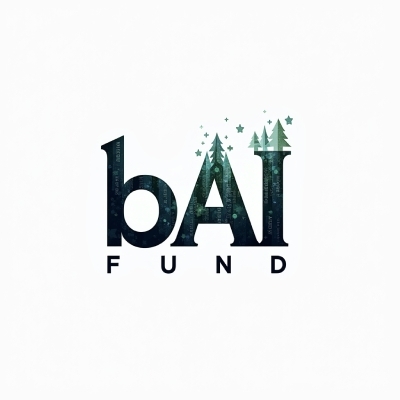BREAKING NEWS: SEC Drops Case Against Ripple. XRP jumps to $15 As Ripple WINS SEC Lawsuit
In a stunning twist in the ongoing legal battle between the SEC and Ripple Labs, the Securities and Exchange Commission has announced a surprising turn of events that has sent shockwaves through the cryptocurrency world. Ripple CEO, Brad Garlinghouse, is celebrating what he calls a “historic win” as XRP prices skyrocket to $15. Is this the beginning of the end for the SEC’s case against Ripple?
In an unexpected move, the SEC has dropped its lawsuit against Ripple Labs, citing a “misunderstanding” regarding the classification of XRP. This bombshell announcement has caught many by surprise, with experts speculating about the implications for the broader cryptocurrency market. Could this signal a shift in regulatory attitudes towards digital assets?
As news of the SEC’s decision spreads, XRP prices are soaring to new heights. With the cryptocurrency now trading at $15, investors are scrambling to get in on the action. Is this the moment XRP holders have been waiting for, or is it just a temporary surge fueled by speculation?
In a triumphant statement, Ripple CEO Brad Garlinghouse has declared victory in the legal battle against the SEC. With the lawsuit behind them, Garlinghouse has announced ambitious plans for Ripple’s future, including expansion into new markets and partnerships with major financial institutions. But will Ripple’s newfound freedom be enough to propel XRP to even greater heights?
With the SEC lawsuit now in the rearview mirror, many are wondering what the future holds for XRP. Will Ripple’s legal victory pave the way for widespread adoption of its blockchain technology? Or will regulatory uncertainty continue to cast a shadow over the cryptocurrency’s prospects? Join us as we explore the potential implications of Ripple’s legal triumph on the future of XRP!
April Fool’s! None of the information in this article is correct. We hope you enjoyed our little prank. Happy April Fool’s Day!
Japan Plans to Treat Crypto Like Stocks Under New Rules
Japan’s Financial Services Agency (FSA) plans to revise the Financial Instruments and Exchange Act so that crypto assets such as Bitcoin can be legally recognized as financial products. Not just digital speculation products, crypto will be treated like stocks or bonds that are strictly regulated by law.
In its draft, the FSA wants to regulate crypto asset transactions within the scope of insider trading rules. So, if someone buys crypto based on confidential information from a company or project before it is released to the public, be prepared to be sanctioned. This rule previously only applied to securities, but now Japan wants to include crypto in the same surveillance radar.
JUST IN: JAPAN TO LEGALLY CLASSIFY BITCOIN AND CRYPTO AS FINANCIAL PRODUCTS.
Source: @rovercrc pic.twitter.com/gBNtt0GMkI
— Mario Nawfal’s Roundtable (@RoundtableSpace) March 30, 2025
Interestingly, on March 10, 2025, the Japanese government had already approved a bill that reformed regulations related to crypto brokers and stablecoins. Through this amendment, crypto companies no longer need permits as complicated as exchanges to operate as intermediaries.
Furthermore, stablecoin issuers also get flexibility in supporting their coins. Now, they are allowed to use Japanese and US government bonds as collateral. This not only adds credibility but also provides a sense of security for investors who are still wary of the volatile crypto world.
If you are still doubting whether Japan is serious about crypto, the story of Remixpoint can be a reminder. The energy consulting firm reported an increase in crypto asset holdings of more than 8,000% in nine months, until the end of 2024.
From just 68 million yen in March 2024, they ended the year holding 5.8 billion yen in crypto, about $38 million. The reason? As a hedge against the weakening Japanese yen.
Imagine if energy companies started buying Bitcoin like they buy oil for stock. That’s not a whim, but part of a hedging strategy. Are you sure it’s not time to look at crypto from a more serious perspective?
On the other hand, stablecoin company Circle, known by its USDC, is also increasingly planting roots in Japan. CNF previously reported that Circle formed a strategic partnership with SBI Holdings and launched Circle Japan KK. Most interestingly, USDC will officially be available in Japan through SBI VC Trade.
This will make stablecoins easier to access and support blockchain-based financial innovation in the Land of the Rising Sun.
This partnership is not just symbolic. It is like injecting high-octane fuel into the Japanese innovation engine. And with more global companies making Japan their base in Asia, it is clear that the country does not want to be left behind in the global Web3 competition map.
If the FSA’s plan actually goes ahead and crypto is categorized as an official financial product, the impact could be huge. Companies that want to sell crypto will have to comply with stricter disclosure standards, similar to stock issuers. On the other hand, this has the potential to attract institutional investors who have so far held back due to unclear rules.
However, not everyone may be happy. There are concerns that overly strict regulations will actually stifle innovation or stifle small projects that are still in the development stage. But, amid the chaos of global crypto regulation, Japan’s move could be a model for balancing investor safety with encouraging innovation.


 最低価格
最低価格 最高価格
最高価格 















































